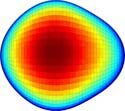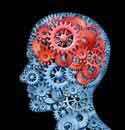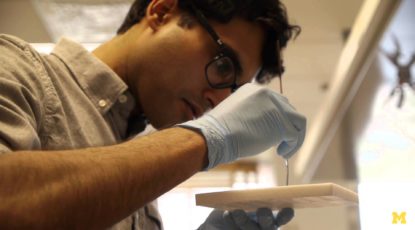Research News
-
Exotic atoms hold clues to unsolved physics puzzle at the dawn of the universe
An international team of physicists has found the first direct evidence of pear-shaped nuclei in exotic atoms. The findings could advance the search for a new fundamental force in nature and explain why the Big Bang created more matter than antimatter—a pivotal imbalance in the history of, well, everything.
-
Depression and the body clock
Every cell in our bodies runs on a 24-hour clock, tuned to the night-day, light-dark cycles that have ruled us since the dawn of humanity. New research shows that clock may be broken in the brains of people with depression.
-
Cyber Attacks: A Clear and Present Danger?
Video: The U.S. Dept. of Defense recently blamed China’s military for cyber attacks on American systems. Just how do these attacks occur, what kind of damage can they create, and how can we combat them?
-
Brain scans reveal first objective measure of pain
Scientists have identified how much pain people feel by looking at images of their brains. The research may set the stage to objectively measure anxiety, depression, anger, and more.
-
'Mean Girls' at College: Social Whirl Derails Many
You’re not done with high school when you go to college, according to a new study of student culture. An in-depth look at the lives of young women shows the high school peer culture that divides students into homecoming queens, wannabes, and nerds thrives in college.
-
Mars Science Lab Update: Atmosphere is Still Dynamic
Mars has lost much of its original atmosphere, but what’s left remains active, according to recent findings from NASA’s Mars rover Curiosity.
-
Building better blood vessels could advance tissue engineering
U-M researchers may have found a way to circumvent a major obstacle in growing replacement hearts, lungs, and kidneys.
-
Do Cockroaches Hold the Key to Building Better Robots?
Video: Everybody knows cockroaches can run—really fast—even as they dodge shoes, brooms, airborne magazines… That ability to course-correct in a flash may help engineers design steadier robots and improve doctors’ understanding of human gait abnormalities.
-
Water on the Moon?
U-M researchers have detected traces of water within the crystalline structure of mineral samples from the moon. The finding seems to contradict a predominant theory about the moon’s formation.








